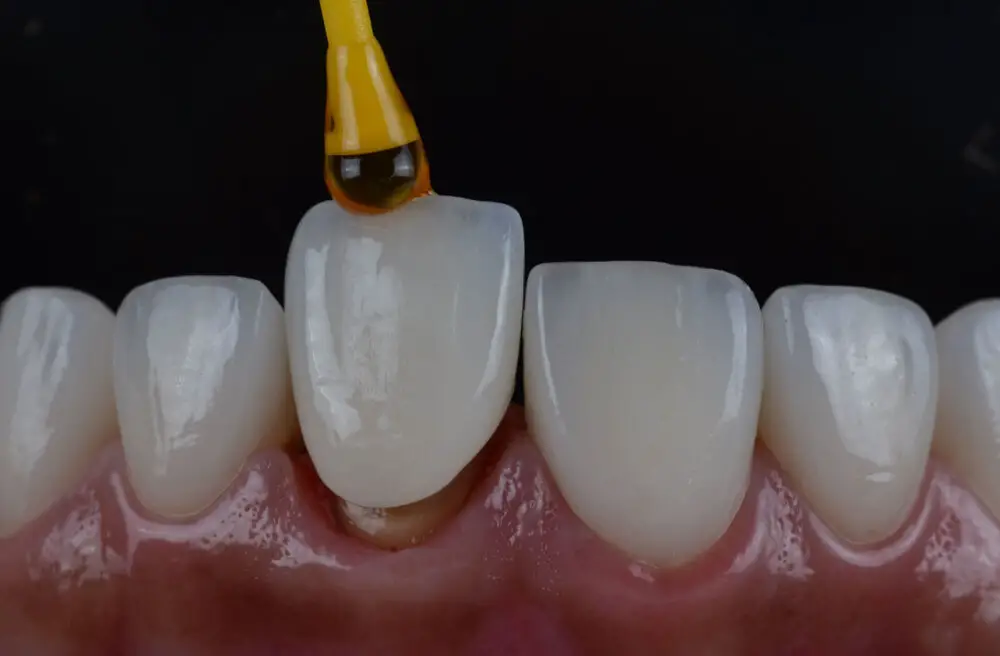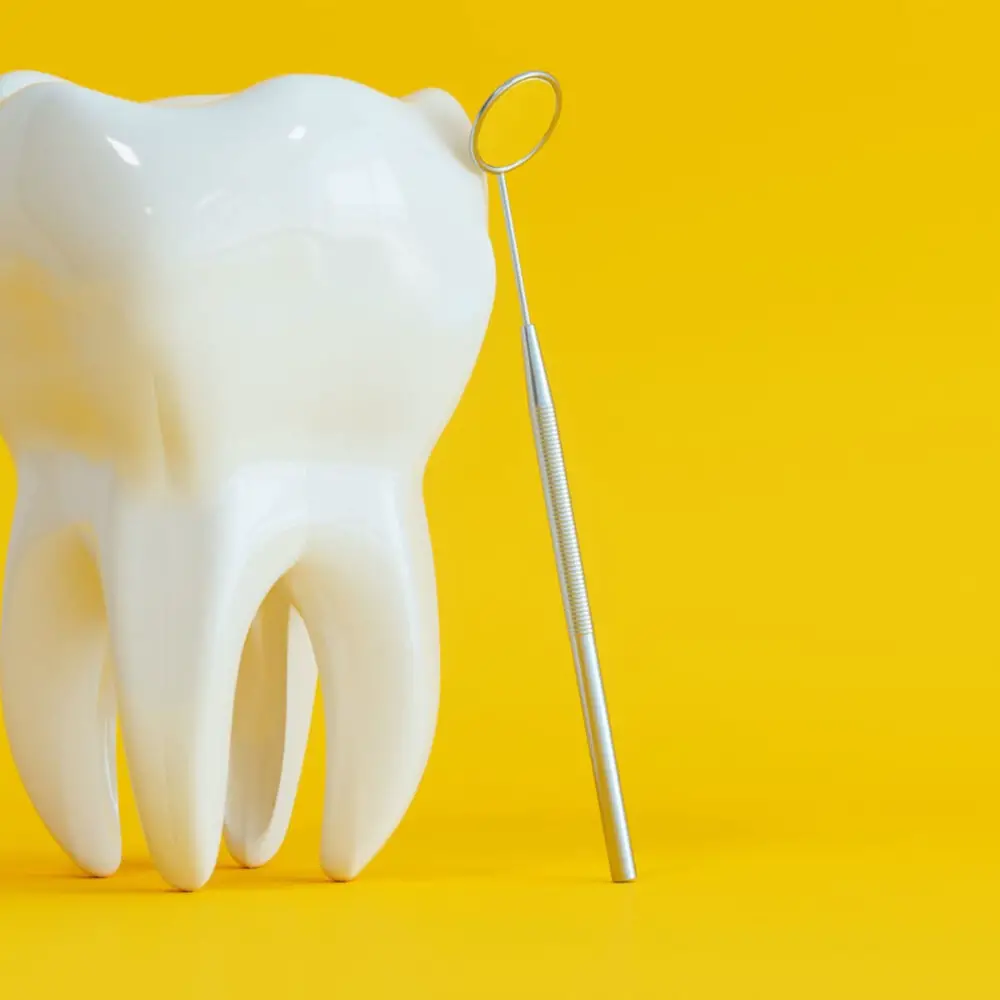Managing Wisdom Teeth Discomfort: Does It Hurt When Your Wisdom Teeth Erupt?

The eruption of wisdom teeth can be a painful and uncomfortable experience for many individuals. Wisdom teeth, also known as third molars, typically emerge during the late teenage years or early adulthood. While not everyone experiences discomfort when their wisdom teeth come in, it’s not uncommon for individuals to feel pain, swelling, and tenderness in the area around their emerging teeth. Managing this discomfort can be challenging, but there are various techniques and remedies that can help alleviate the pain and make the process more manageable. The discomfort associated with wisdom teeth eruption can range from mild to severe, and the intensity can vary from person to person. Some individuals may not feel any pain or discomfort at all, while others may experience significant discomfort that affects their daily life. Common symptoms of wisdom teeth eruption include swelling, tenderness, and pain in the gums and jaw, as well as difficulty opening the mouth and chewing. In some cases, the emerging teeth can cause crowding or shifting of other teeth, leading to additional discomfort and potential dental problems. If you’re experiencing wisdom teeth discomfort, it’s essential to understand the causes and seek appropriate treatment to manage your symptoms effectively.
Wisdom teeth are the third molars that typically emerge between the ages of 17 and 25. These teeth were once necessary for our ancient ancestors who had larger jaws and needed extra molars to chew tough foods. However, modern-day humans have smaller jaws, and there is often no room for these teeth to properly erupt. As a result, wisdom teeth can become impacted or grow in at an angle, causing discomfort, pain, and even infection. Removing these teeth is often recommended to prevent further complications and alleviate discomfort. While some people may not experience any issues with their wisdom teeth, others may require extraction to maintain good oral health.
Managing discomfort is crucial when it comes to wisdom teeth eruption. Wisdom teeth can cause significant pain and discomfort, making it difficult to eat, talk, and even sleep. Ignoring this discomfort can lead to more severe dental issues such as infection or damage to adjacent teeth. Therefore, it is essential to take measures to manage the pain and discomfort that arise from wisdom teeth eruption. This can include taking painkillers, applying ice packs, and maintaining good oral hygiene. Effective management of discomfort not only helps alleviate the symptoms but also promotes proper healing and prevents further complications, ensuring better overall dental health.
The article titled \Managing Wisdom Teeth Discomfort: Does It Hurt When Your Wisdom Teeth Erupt\ guides the reader through the process of wisdom teeth eruption and the common discomfort that comes with it. The article is structured in a clear and concise manner, starting with an introduction to wisdom teeth and their development. It then proceeds to discuss the symptoms of wisdom teeth eruption, such as pain and swelling, and how to manage them through home remedies and medical intervention. The article also provides practical tips on how to prevent complications during and after wisdom teeth extraction. Overall, the article is informative and well-organized, making it a useful resource for those experiencing wisdom teeth discomfort.
What are Wisdom Teeth?

Wisdom teeth, also known as third molars, are the last set of molars to emerge in the back of the mouth. They typically develop during the late teenage years or early adulthood, between the ages of 17 and 25. While some people have enough room in their mouths to accommodate these teeth, others may experience discomfort or pain as they come in. In some cases, wisdom teeth may not fully emerge, leading to impacted teeth that can cause infections or damage to surrounding teeth. The development of wisdom teeth is a natural process that occurs in most adults, but not everyone will experience discomfort or pain. Some individuals may have enough room in their mouths for these teeth to emerge without issue, while others may need to have them removed by a dentist or oral surgeon. Symptoms of impacted wisdom teeth may include pain, swelling, redness or tenderness in the gums, or difficulty opening the mouth. If you are experiencing discomfort associated with your wisdom teeth, it is important to seek professional advice to prevent further issues from arising.
Wisdom teeth are the third set of molars that typically emerge in the back of the mouth between the ages of 17 to 25. These teeth were once thought to provide a source of wisdom, hence their name. However, these days, they are more commonly known for the discomfort they can cause when they erupt. Wisdom teeth can be impacted, meaning they do not have enough room to emerge fully, causing pain, swelling, and infection. In some cases, they may grow in at an angle, pushing against other teeth, and causing further discomfort. While some people may not experience any issues with their wisdom teeth, for many, managing the discomfort associated with their eruption can be a challenging process.
Wisdom teeth, also known as third molars, typically erupt between the ages of 17 and 25. These teeth are the last to emerge in the mouth and can cause discomfort due to the limited space available for them to grow. In some cases, wisdom teeth may not fully emerge, causing them to become impacted, leading to pain and infection. It’s essential to monitor the eruption of wisdom teeth and seek dental advice if there are any concerns about discomfort or potential complications. Proper management of wisdom teeth discomfort can help alleviate pain and prevent further complications.
Wisdom teeth, also known as third molars, can be problematic for many reasons. One of the main issues is that they often don’t have enough room to grow properly, which can lead to impaction and infection. This can cause swelling, pain, and discomfort in the mouth and jaw. Additionally, wisdom teeth can sometimes grow in at an angle, pushing against other teeth and causing alignment problems. In some cases, wisdom teeth may even need to be removed in order to prevent further complications. Overall, managing wisdom teeth discomfort requires proper care and attention to prevent potential problems from arising.
Symptoms of Erupting Wisdom Teeth

Erupting wisdom teeth can cause a variety of uncomfortable symptoms that can vary in intensity for each individual. Some of the most common symptoms include pain or tenderness in the gums or jaw, swelling, and redness. Many people also experience difficulty opening their mouth fully or biting down without discomfort. Additionally, erupting wisdom teeth can cause headaches, earaches, and a general feeling of malaise. These symptoms can be particularly pronounced when the wisdom teeth are impacted, meaning they are not able to emerge fully from the gums. In some cases, erupting wisdom teeth can also lead to more serious complications such as infection or damage to adjacent teeth. Infection can occur when bacteria enter the gums around the partially erupted tooth, leading to swelling, pain, and even fever. Damage to adjacent teeth can occur when the erupting wisdom tooth pushes against other teeth, causing them to shift or become misaligned. For these reasons, it is important to monitor the symptoms of erupting wisdom teeth and seek treatment if necessary to prevent further complications.
The eruption of wisdom teeth can cause various symptoms, including pain, swelling, and tenderness in the gums. Some people may also experience difficulty opening their mouth fully or have a bad taste in their mouth due to an infection. In some cases, wisdom teeth may cause crowding or shifting of the other teeth, leading to bite problems and jaw pain. Additionally, impacted wisdom teeth or those that do not fully emerge from the gums can cause inflammation and infection, resulting in severe discomfort. Therefore, it is essential to monitor any changes in the mouth and seek dental advice promptly to manage wisdom teeth discomfort effectively.
Normal symptoms during the eruption of wisdom teeth can include some discomfort, swelling, and mild pain. However, when these symptoms become problematic, they can lead to severe pain, difficulty in opening the mouth, bad breath, and even fever. It is important to recognize the difference between normal and problematic symptoms to determine when to seek professional help. Normal symptoms can be managed with over-the-counter painkillers and by maintaining good oral hygiene. But, if the symptoms persist or worsen, it is best to consult a dentist to avoid further complications.
It is essential to see a dentist if you experience any discomfort or pain in your wisdom teeth. Wisdom teeth usually erupt between the ages of 17 and 25, and they can cause various dental problems, such as gum inflammation, tooth decay, and misalignment. If you notice symptoms such as swelling, redness, bleeding, or difficulty opening your mouth, it is crucial to seek professional dental care. Additionally, regular dental check-ups can help detect any potential issues with your wisdom teeth and prevent or treat them before they escalate. Therefore, don’t ignore any signs of dental discomfort and book an appointment with your dentist as soon as possible.
Managing Discomfort

Managing discomfort is an essential part of dealing with the eruption of wisdom teeth. The process of wisdom teeth eruption can be quite painful and uncomfortable for some individuals. However, there are various ways to manage the discomfort that can arise during this process. One of the most effective ways to manage discomfort is through the use of painkillers such as ibuprofen. These painkillers help to reduce inflammation, which can alleviate the pain associated with wisdom teeth eruption. Additionally, applying a cold compress to the affected area can also help to numb the pain. Another way to manage discomfort during wisdom teeth eruption is by maintaining good oral hygiene. This involves brushing and flossing regularly to keep the area clean and prevent the accumulation of bacteria. A saltwater rinse can also be used to soothe the gums and reduce inflammation. It is important to avoid smoking and consuming alcohol, as these can exacerbate the discomfort associated with wisdom teeth eruption. In some cases, a dentist may recommend the use of a mouthguard to alleviate discomfort caused by teeth grinding or clenching. By following these tips, individuals can effectively manage the discomfort associated with wisdom teeth eruption and ensure a smooth and comfortable recovery.
When it comes to managing wisdom teeth discomfort, over-the-counter pain relief options can be a great help. Nonsteroidal anti-inflammatory drugs (NSAIDs) like ibuprofen and aspirin are effective in reducing inflammation and pain. Acetaminophen is another commonly used pain reliever, but it only works on pain and not inflammation. Topical numbing gels containing benzocaine can also be applied directly to the affected area for temporary relief. However, it is important to read and follow the instructions carefully and not exceed the recommended dosage or frequency of use to avoid any side effects or complications. If the pain persists or worsens, it is important to seek professional dental care.
Dealing with wisdom teeth discomfort can be a challenging task, but luckily, there are several home remedies that can help alleviate the pain. One of the most effective remedies is saltwater rinses, which involves mixing a teaspoon of salt with warm water and swishing it around the mouth for a few minutes. This not only helps reduce inflammation but also prevents infection. Applying a cold compress to the affected area can also provide relief, as it helps numb the nerves and reduce swelling. Additionally, over-the-counter pain relievers such as ibuprofen or acetaminophen can be taken as directed to manage the pain. Lastly, maintaining good oral hygiene by brushing and flossing regularly can help prevent further discomfort and complications.
Managing discomfort during the eruption process of wisdom teeth can be challenging, but there are several tips that can help alleviate the pain. One of the most effective ways to manage discomfort is to use over-the-counter pain medication such as ibuprofen or acetaminophen. Applying cold compresses to the affected area can also help reduce swelling and numb the pain. It’s also important to maintain good oral hygiene by brushing and flossing regularly, as well as rinsing your mouth with warm salt water to prevent infection. Additionally, avoiding hard, crunchy, or sticky foods can help prevent further irritation to the gums. Lastly, seeking advice from a dental professional can help you manage your discomfort during the eruption process.
Extraction Options

Managing wisdom teeth discomfort can be a challenging experience, especially when they start erupting. One of the ways to alleviate the pain is through extraction. This process involves a dentist or oral surgeon removing the wisdom teeth from the jawbone and gums. Extraction options vary depending on the condition of the teeth and the patient’s preference. The first extraction option is simple extraction. This method is used when the wisdom teeth have fully erupted and are visible above the gum line. The dentist will numb the area with local anesthesia and use forceps to pull the teeth out of the socket. Simple extraction is a quick procedure that usually takes a few minutes to complete. The patient may experience some discomfort and swelling afterward, but this can be managed with over-the-counter pain relievers and ice packs. The second extraction option is surgical extraction. This method is used when the wisdom teeth are impacted or partially erupted. The dentist or oral surgeon will make a small incision in the gum to access the teeth and remove them from the jawbone. This procedure requires general anesthesia and can take up to an hour to complete. After the surgery, the patient may experience more pain and swelling than with simple extraction, but this can be managed with prescription pain medication and rest. Ultimately, the extraction option chosen will depend on the individual’s specific needs and the recommendation of their dental professional.
Wisdom teeth, also known as third molars, are the last set of molars to emerge in the back of the mouth, usually in the late teens or early twenties. While some people are lucky enough to have enough space in their mouths for these teeth to grow in without issue, others may experience pain, discomfort, or even infection. This can be caused by a variety of factors, including impaction, which occurs when the tooth doesn’t have enough room to emerge fully, or improper alignment, which can cause the tooth to push against other teeth and cause pain. In cases where the tooth is causing significant discomfort or poses a risk for infection or other oral health problems, wisdom teeth extraction may be recommended by a dental professional.
The extraction process is a common solution for managing wisdom teeth discomfort. It involves removing one or more of the third molars located at the back of the mouth. The procedure is typically performed by an oral surgeon or dentist under local anesthesia. During the extraction, the dentist will make an incision in the gum tissue and remove any bone that may be blocking the tooth. The tooth is then gently rocked back and forth to loosen it from the socket before being lifted out. After the extraction, the patient will need to rest and avoid certain foods and activities for a few days while the area heals. Pain medication may also be prescribed to manage any discomfort. Overall, the extraction process is a safe and effective way to alleviate wisdom teeth pain and prevent future dental problems.
Recovery and aftercare are crucial components of managing wisdom teeth discomfort. After the wisdom teeth removal procedure, it is essential to follow the dentist’s instructions to ensure proper healing. Following the procedure, patients should avoid smoking, drinking through straws, and consuming hard or chewy foods for the first few days. Patients should also take prescribed pain medications and use ice packs to reduce swelling. Additionally, maintaining good oral hygiene, including gentle brushing, flossing, and rinsing with saltwater, is essential to prevent infection. Regular follow-up appointments with the dentist are also necessary to monitor the healing process and address any concerns. Proper recovery and aftercare can help minimize discomfort, reduce the risk of complications, and ensure a successful outcome.
In summary, managing wisdom teeth discomfort can be a challenging experience, but there are ways to alleviate the pain. It is important to maintain proper oral hygiene to avoid infection and inflammation. Applying cold compresses and taking over-the-counter pain relievers can also provide relief. Eating soft foods and avoiding hard and crunchy foods can prevent further irritation. However, in some cases, it may be necessary to have the wisdom teeth removed to prevent complications. It is important to consult with a dentist or oral surgeon to determine the best course of action for managing wisdom teeth discomfort.
Addressing wisdom teeth discomfort is crucial for maintaining good oral health and overall well-being. Wisdom teeth, also known as third molars, are the last teeth to emerge at the back of the mouth, and their development can cause significant discomfort and pain. Neglecting this discomfort can lead to infections, gum disease, and damage to surrounding teeth. Furthermore, impacted wisdom teeth can cause jaw pain, headaches, and difficulty opening the mouth. It is important to address wisdom teeth discomfort promptly by consulting a dentist or oral surgeon, who can recommend appropriate treatments such as pain relief medication, dental extractions, or oral surgery. By addressing this issue early on, one can avoid further complications and ensure a healthy smile.
Experiencing discomfort when your wisdom teeth start to erupt can be a difficult and painful experience. It is important to remember that seeking professional advice and treatment is the best course of action to manage this discomfort. Ignoring the pain and hoping it will go away on its own can lead to more serious dental issues in the future. By seeking the help of a dental professional, you can receive a proper diagnosis and treatment plan tailored to your specific needs. Don’t suffer in silence, take control of your dental health and seek the advice of a professional if you are experiencing any discomfort.
Conclusion

In conclusion, managing wisdom teeth discomfort can be a challenging task for many individuals. The eruption of wisdom teeth can cause significant pain and discomfort, but it is essential to take the necessary steps to manage this discomfort. From practicing good oral hygiene to seeking professional dental care, there are various ways to alleviate the pain and discomfort associated with wisdom teeth. It is crucial to stay informed and seek advice from dental professionals to ensure the best possible outcome. Remember, the discomfort associated with wisdom teeth is only temporary, and with proper management, you can ensure a healthy and pain-free smile for years to come.







